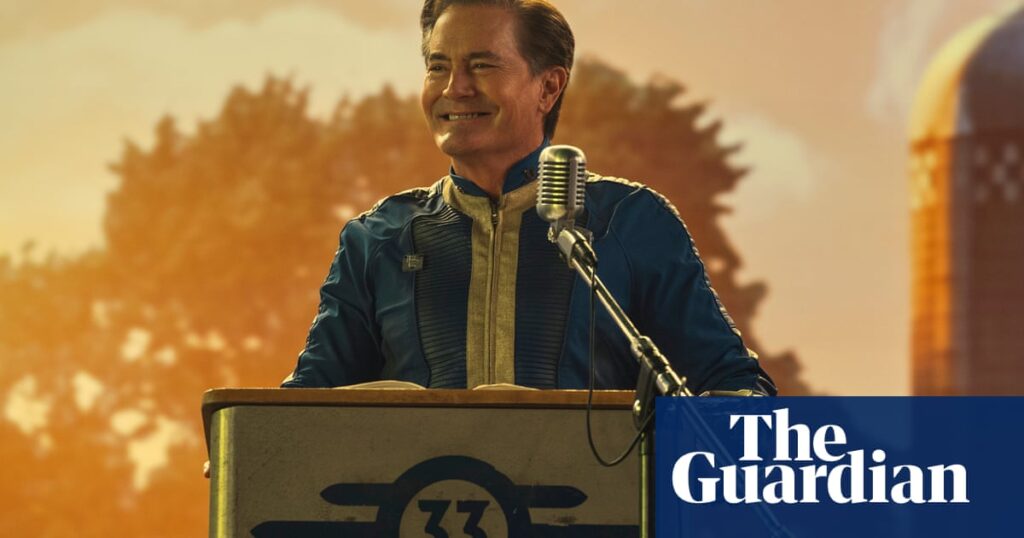IIn its first few days of release, Fallout, the Prime Video adaptation of the post-apocalyptic video game series, became a hit with audiences around the world, topping the UK charts and becoming one of the top three most-watched titles on Prime. It was ranked in. Until now.
On Friday, just one week after the show was released in more than 240 countries and territories, Amazon announced that it had renewed the show for a second season. “The bar has been high for lovers of this iconic video game, but so far we have exceeded their expectations and brought millions of new fans to the series,” the streamer said. Ta.
The success of the show, which is set 200 years after nuclear Armageddon and stars Ella Purnell, Kyle MacLachlan and Aaron Moten, shows how much video game adaptations have improved in recent years and are finally breaking into the mainstream. .
Numerous commercial successes include last year's HBO series The Last of Us, which won eight Emmy Awards, and The Super Mario Bros. Movie, which grossed $1.36 billion (£1.094 billion) at the global box office. Hits and critical hits drove the market. Experts are drawing comparisons to Marvel movies, which have traditionally been a notorious moneymaker for studios.
“Game adaptations are the new superhero movies,” said Rhys Elliott, a games industry analyst at MiDiA Research. “Recent box office numbers, online sentiment, and reviews of superhero movies indicate that consumers and critics alike are experiencing superhero fatigue.
“But game adaptations provide an oasis for film and TV studios. The huge box office success of last year's Mario movies and the high critic scores of shows like Fallout and The Last of Us are highly narrative The gaming industry has always understood the power of its IP, and now Hollywood and television are finally starting to understand.”
According to Elliott, the movie “Super Mario Bros.'' was the biggest turning point when studios realized the potential of games. It not only became the highest-grossing game in history, but also the second-highest-grossing animated film, surpassing blockbusters such as Frozen and Despicable Me. did. In the television realm, shows like The Witcher, Cyberpunk, The Last of Us and Fallout demonstrate how video game stories can become part of the cultural zeitgeist beyond gaming. has been shown.
A Minecraft movie is set to hit theaters next year, a live-action film based on The Legend of Zelda series is in development, and Margot Robbie is reportedly working on a The Sims movie. .
“This represents a shift towards gaming IP, and this shift will continue with each new success story. If studios weren’t paying attention to games before, they are now “We're paying close attention to it,” Elliott said.
Video game fans are expressing relief that the so-called curse of this movie adaptation has been lifted. They attribute this to two things. One is that the modern version stays true to the game's tone while expanding on the story, and the other is that the studio is spending money to secure some of the most famous actors and producers in film and television. is.
Fallout, for example, was able to speak to longtime fans of the game as well as newcomers by setting the story after the events of the game. Producer and director Jonathan Nolan was given the job because he had been obsessed with the game for some time. “He obviously played a lot,” said Todd Howard, developer of the modern video game “Fallout.” “He could tell it with truth and he understood what made it tick.”
Video games editor Keza MacDonald, writing in the Guardian, said Hollywood had given up its previous reservations. “In just one year, the curse of the dreaded video game adaptation has been completely shattered, so film studios now seem to be in for a gold rush,” she says.
Rob Mitchell, director of theatrical insights at Gower Street Analytics, said video game adaptations have been a regular focus of Hollywood for decades, dating back to at least the early '90s with Gene's Super Mario He pointed out that it goes back to the Brothers and Street Fighter adaptations. Claude Van Damme. Others cite a series of poor attempts (think Tom Raider, Assassin's Creed, Resident Evil, or Max Payne).
But Mitchell said personal success boosts confidence. “In doing so, we were able to channel the current positive vibes into the 2000s, a time of pre-MCU comic book adaptations, when the success of films like X-Men and Spider-Man brought great confidence to live-action comic book adaptations. You can also compare it to the beginning.
“But the MCU has developed a single, unified vision under the leadership of Kevin Feige. [president of Marvel Studios], no equivalent exists yet behind a video game property. ”
According to Mitchell, one of the main reasons producers were keen to capitalize on video games was their worldwide recognition. For example, last year's blockbuster horror film Five Nights at Freddy's grossed $291.5 million, of which 52.9% came from outside the United States. This number rose to 63.5% (out of $407 million) for Uncharted, starring Tom Holland, and 91.4% (out of $312 million) for Resident Evil: The Final Chapter. “Appealing to a global audience is the cornerstone of a successful franchise,” he said.
This was a sentiment echoed by Vue Cinemas chief executive Tim Richards, who said the key to the success of a film adaptation is its appeal to a wide audience.
“In the case of video game adaptations, like book adaptations or other material that may be recognized by the public, it's easier to launch because there's already a recognizable name,” he said. . “Look at Barbie. Barbie has characters that everyone knows, that people grew up with, that they know and love. It's a matter of habituation. I think we're going to see more of that. .”


